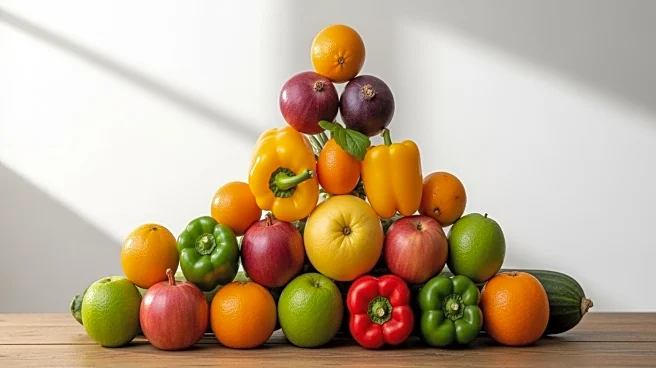What's Happening?
China has announced its fertiliser import tariff quotas for 2026, setting the limit at 13.65 million metric tons. This decision, communicated by the commerce ministry, is part of China's broader strategy
to manage its agricultural inputs and trade policies. The quotas are a critical component of China's efforts to balance domestic production with international imports, ensuring a stable supply of fertilisers for its agricultural sector. This move is likely to influence global fertiliser markets, affecting trade dynamics and pricing strategies.
Why It's Important?
China's decision to set specific import quotas for fertilisers is significant for global trade, as it can impact supply chains and pricing in the international market. As one of the largest consumers of fertilisers, China's import policies can influence global demand and affect the economic strategies of exporting countries. This development is particularly relevant for U.S. agricultural and chemical industries, which may need to adjust their production and export plans in response to China's quotas. The decision underscores the interconnectedness of global trade and the importance of strategic planning in international commerce.
What's Next?
In response to China's import quotas, global fertiliser producers and exporters may need to reassess their market strategies and explore alternative markets to mitigate potential impacts. There could be increased diplomatic and trade negotiations as countries seek to understand and adapt to China's policy changes. Additionally, stakeholders in the agricultural sector may advocate for policies that support domestic production and reduce reliance on imports. Monitoring China's future trade policies will be crucial for anticipating shifts in the global fertiliser market.











